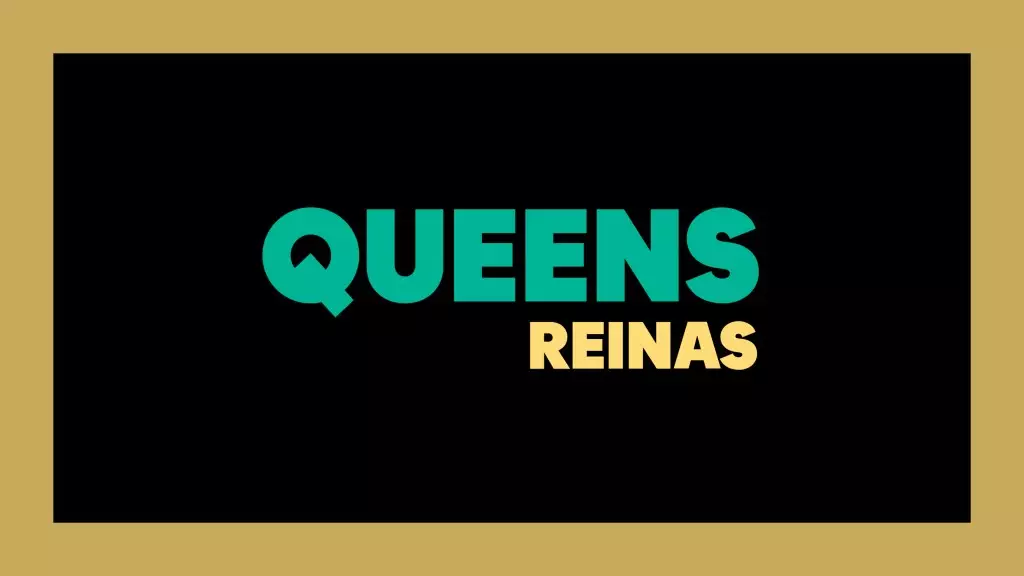“Queens” (Reinas) has garnered significant acclaim as Switzerland’s contender for the International Feature Oscar this year, despite its roots firmly embedded in Peru and its narrative delivered in Spanish. This film, directed by the talented Klaudia Reynicke, encapsulates a personal and poignant journey of reconnection, evoking a deep sense of belonging that resonates with viewers, particularly those navigating the complexities of identity in the diaspora.
Klaudia Reynicke, who emigrated from Peru at the tender age of ten, articulates how this cinematic endeavor became a conduit for her to revisit her cultural heritage. In discussions following the film’s showcasing at Deadline’s Contenders Film event, Reynicke candidly expressed that although her motivations weren’t explicitly articulated at first, there was an intrinsic desire to return to her roots and create a film in her native Spanish. This realization not only reflects a common struggle among expatriates—seeking to reconcile their distant past with their current realities—but also underscores the transformative power of cinema.
The narrative of “Queens” unfolds against the tumultuous backdrop of 1992 Peru, a period characterized by social unrest and political instability. This era is not merely a setting but a pivotal character in the film, influencing the decisions and emotions of its characters. At the heart of the story is single mother Elena, who dreams of a brighter future for her daughters, Lucía and Aurora. However, her aspirations are thwarted by the necessity of their estranged father, Carlos, to sign necessary documents for their leave. This scenario underscores a universal theme of family dynamics and the burdens of responsibility, which are magnified by the strains of separation.
Carlos, portrayed by Gonzalo Molina, embodies the complexities of a fractured family. His character grapples with the residual pain of being an absent father, attempting to forge connections with his daughters, whom he affectionately addresses as “queens.” This characterization of Carlos as a “broken man” striving for redemption speaks volumes about parental guilt and the quest for forgiveness, making him relatable to anyone who has experienced familial conflict. In one of the film’s more profound moments, his self-deprecating affection for his daughters unveils a poignant tension: he acknowledges their superiority while wrestling with his failings as a father.
The rich character development extends to the daughters, particularly Aurora, played by Luana Vega. Aurora’s journey of grappling with feelings of resentment and longing is emblematic of the divergent paths children take when dealing with absent parents. Luana Vega describes the emotional depths she navigated to embody Aurora’s complexity, shining a light on the often-unspoken struggles of children in similar circumstances. The relationship dynamics presented in “Queens” highlight the contrasting experiences of sibling relationships, such as how each daughter interprets their father’s absence—Lucía’s naive hope contrasted against Aurora’s wounded skepticism.
Despite the emotional load, “Queens” ultimately presents a narrative of unity and closure. Reynicke delicately frames moments of familial bonding, capturing the brief yet profound intersections of love amid impending separation. Her acknowledgment that the film’s conclusion reflects life’s inevitable changes rather than a sorrowful ending serves as a comforting reminder. The family, having gained a newfound love and strength, reflects the resilience inherent in human relationships.
“Queens” is not merely an artistic expression but has also achieved notable accolades within international film circuits. Following its premiere at Sundance, the film carved a niche for itself, winning prestigious awards such as the Grand Jury Prize for Best Feature in the Generation Kplus section of the Berlin Film Festival. These honors not only affirm Reynicke’s directorial prowess but also highlight the global appetite for authentic stories that advocate for cultural representation and empathy.
“Queens” resonates beyond its Peruvian setting, echoing the experiences of many families caught in the web of disappointment and hope. Reynicke’s journey back to her origins through film illuminates the power of storytelling to heal and bridge cultural gaps. As viewers traverse the emotional landscapes crafted by “Queens,” they are reminded that reconnection is an essential part of the human experience, capable of fostering love in the face of adversity.


Leave a Reply